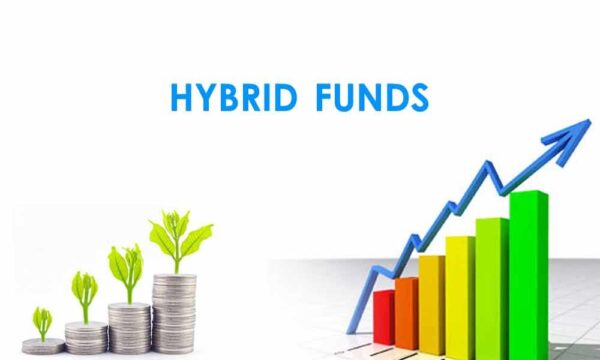Mutual funds are broadly classified into three types – equity funds, debt funds and hybrid funds. While equity funds are for those willing to assume high risks for high returns and debt funds suit those who are looking for low-risk investments that offer stable returns, hybrid funds give investors an opportunity to balance the risk and return.
What are hybrid funds and why you should have them in your portfolio?
Hybrid funds invest in a combination of asset classes, primarily equity and debt. Since the investment is in different asset classes with different risk levels, hybrid funds by investing in a mix of asset classes offers better risk adjusted returns.
Along with offering a balance between risks and returns, here are some reasons why hybrid funds should form a part of your portfolio:
- Varying asset allocation: There are different types of hybrid funds having different level of allocation to equity and debt. For example, some hybrid funds have equity as their dominant component, whereas some invest primarily in debt. There are also some hybrid funds that have dynamic asset allocation i.e. they have the flexibility to move between asset classes based on market conditions. Thus, even though hybrid funds are a mix of equity and debt, investors can select the one that suits their risk appetite and goals.
- Diversification: A hybrid fund gives you exposure to different asset classes with a single investment. In fact, there can be diversification even within an asset class. For example, while making equity allocations, the fund manager can choose to explore different market capitalisations. Moreover, apart from investing in equity and debt, some hybrid funds can also invest in other assets such as gold and units of REITs and InvITs. Thus, you can diversify across asset classes and within an asset class as well by investing in a single fund.
- Suitable for beginners: First-time investors who want an equity exposure but are unsure of assuming the associated high risk, can opt for hybrid funds.
What are equity-oriented and debt-oriented hybrid funds?
Broadly, hybrid funds can be classified into equity-oriented or debt-oriented funds.
Equity-oriented hybrid funds: If a hybrid fund has at least 65% of its assets invested in equity and equity-related instruments, it is known as an equity-oriented hybrid fund. The fund manager can invest the remaining assets in debt and money market instruments. Equity-oriented hybrid funds are subject to equity taxation.
Debt-oriented hybrid funds: If the fund manager invests at least 65% of the fund’s assets in fixed income securities, that hybrid fund is called a debt-oriented hybrid fund. The remaining assets can be invested in equity. Debt-oriented hybrid funds are subject to taxation applicable to debt funds.
Mutual funds also offer Dynamic Asset Allocation funds and Multi Asset Allocation funds under the hybrid fund category. These funds have the flexibility to change the percentage of allocation to each asset class based on the market conditions. Taxation for these funds depends on the domestic net equity allocation in the preceding 12 month, and it has to be 65% and above of the total net assets, to qualify as an equity-oriented scheme.
What are the things to keep in mind before investing in hybrid funds?
- Risk-return profile: Different hybrid funds will have different risk-return profiles based on percentage of allocation to each asset class. Thus, you must go through the scheme details to understand the risk levels and if the fund is suitable for you.
- Investment horizon: Such funds are usually suited for investors who have medium-term financial goals such as buying a car or going on an international trip. If you have a very short investment horizon, you may want to consider debt funds. Similarly, for a longer horizon, you may prefer staying invested in equity funds for earning inflation-beating returns over time.
- Taxation: As mentioned earlier, the tax treatment of the fund depends on its asset allocation. So, understand the fund composition well to know how your returns will be taxed.
Bottom line
Hybrid funds allow you to get the best of both worlds with a single investment. Such funds are thus, suitable for investors looking for diversification across asset class for better risk adjusted returns.

